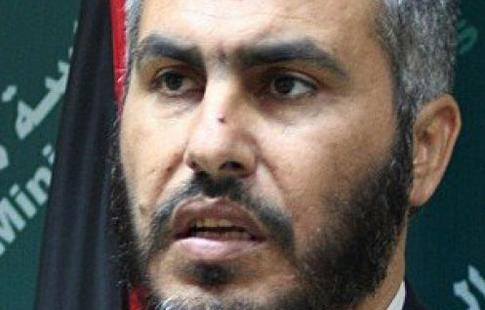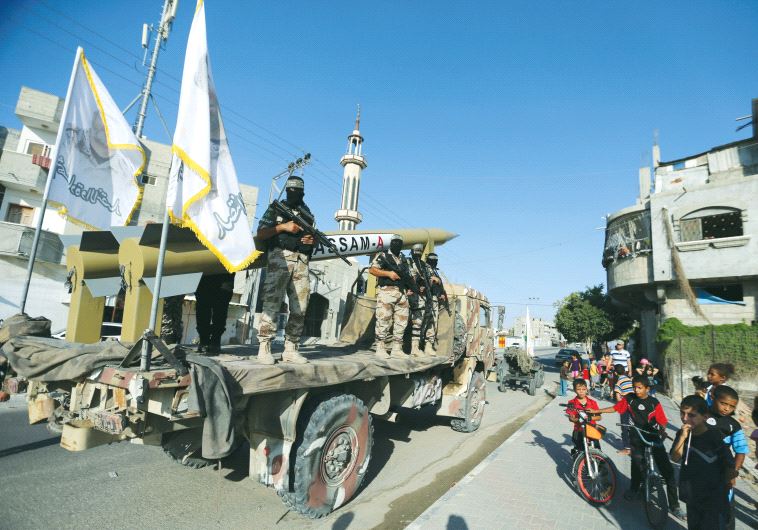In his address to the United Nations Seminar of Assistance to the Palestinian People held in Cairo, Gershon Baskin said that the Israelis and the Palestinians did not have the tools or ability to resolve the conflict by themselves.
Gershon Baskin said that Israel and the Palestinians did not have the tools or ability to resolve the conflict by themselves. He recommended an internationalization of the solution, proposing that Israel withdraw behind the security barrier, including all settlements east of the barrier, and that it request a United Nations interim administration mission take responsibility for those areas and prepare the Palestinian Territory for independence.
The private sector might be able to help in the current situation in the Occupied Territory, Hanna Siniora, Chairman of the Palestinian-European Chamber of Commerce, said. He suggested giving responsibility for the housing business and other areas to the private sector in order to create jobs and form a larger base of people able to pay taxes.
Stating that internationalization of the solution was perhaps the best way to ensure a two-State solution, he suggested that consideration be given to the Arab peace plan, as well as to a United Nations interim administration mission. Elaborating on the mission, he said that Israel should withdraw behind the security barrier, including all settlements east of the barrier, and request that a United Nations interim administration mission take responsibility for those areas and prepare the Palestinian Territories for independence. The mission would include a military arm and maintain a strong presence along the Jordan River, as well as man all the crossing points into Israel from the Palestinian side. It would also have policing function and work directly with Palestinian security forces under a single command. With a financial governance component, the mission would undertake several major infrastructure projects and be the recipient and administrator of international aid benefiting the Palestinian people. Future control of the political process would be in the hands of the Security Council.
Continuing, he said that such a plan would enable Israel to conduct a secure and safe withdrawal. Direct responsibility for the welfare of the Palestinians would be transferred to the international community. Hamas would also transfer financial management and governance of the Territories to the international community. With the advent of major economic development and infrastructure projects, Palestinians would be less dependent on Israel. Israeli borders in the West Bank would be secured by international troops. A disadvantage for Israel would be that it would be limited in what it could do inside the Territories controlled by international forces. It would also lose control over the eastern border with Jordan.
The advantages for the Palestinians, he said, included internationalization of the solution and removal of Israel from most of the Occupied Territory with the possibility of returning to internationally assisted negotiations on final status issues. Disadvantages included a less independent Palestinian Authority that would have to work in accordance with an international administration.
Gershon Baskin said that any humanitarian crisis in the Palestinian Territory was first and foremost a political crisis. The failure of the international community to see through the implementation of the Road Map as well as the failure of Israel and the Palestinian Authority to implement what they had committed themselves to had led to the current crisis. Real action was being taken by President Abbas to create a governing alternative to Hamas, and it was time for Israel to take action and engage itself. If Mr. Abbas’ leadership and authority were not strengthened by the West and Israeli engagement, then Ramallah, Gaza and Nablus might witness some inter-Palestinian confrontations. The only way to successfully implement the Kadima Party convergence plan was to work hand in hand with Mr. Abbas. If total anarchy and chaos emerged in the Occupied Territory, the international community must be ready to step in.
He said Israel and the Palestinians did not have the tools nor the ability to resolve the conflict by themselves. Stating that internationalization of the solution was perhaps the best way to ensure a two-State solution, he suggested that consideration be given to the Arab peace plan, as well as to a United Nations interim administration mission. Elaborating on the mission, he said that Israel should withdraw behind the security barrier, dismantle all settlements east of the barrier, and request that a United Nations interim administration mission take responsibility for those areas and prepare the Palestinian Territories for independence. The mission would include a military arm and maintain a strong presence along the Jordan River, as well as man all the crossing points into Israel from the Palestinian side. It would also have policing function and work directly with Palestinian security forces under a single command. With a financial governance component, the mission would undertake several major infrastructure projects and be the recipient and administrator of international aid benefiting the Palestinian people. Future control of the political process would be in the hands of the Security Council.
Continuing, he said that such a plan would enable Israel to conduct a secure and safe withdrawal. Direct responsibility for the welfare of the Palestinians would be transferred to the international community. Hamas would also transfer financial management and governance of the Territories to the international community. With the advent of major economic development and infrastructure projects, Palestinians would be less dependent on Israel. Israeli borders in the West Bank would be secured by international troops instead of Palestinian forces. A disadvantage for Israel would be that it would be limited in what it could do inside the Territories controlled by international forces. It would also lose control over the eastern border with Jordan. The advantages for the Palestinians, he said, included internationalization of the solution and removal of Israel from most of the Occupied Territory with the possibility of returning to internationally assisted negotiations on final status issues. The disadvantages included a less independent Palestinian Authority that would have to work in accordance with an international administration.
– See more at: http://domino.un.org/unispal.nsf/99818751a6a4c9c6852560690077ef61/1177c141fd6aa3d8852571b7005721cf?OpenDocument#sthash.PDbVBCry.dpuf


